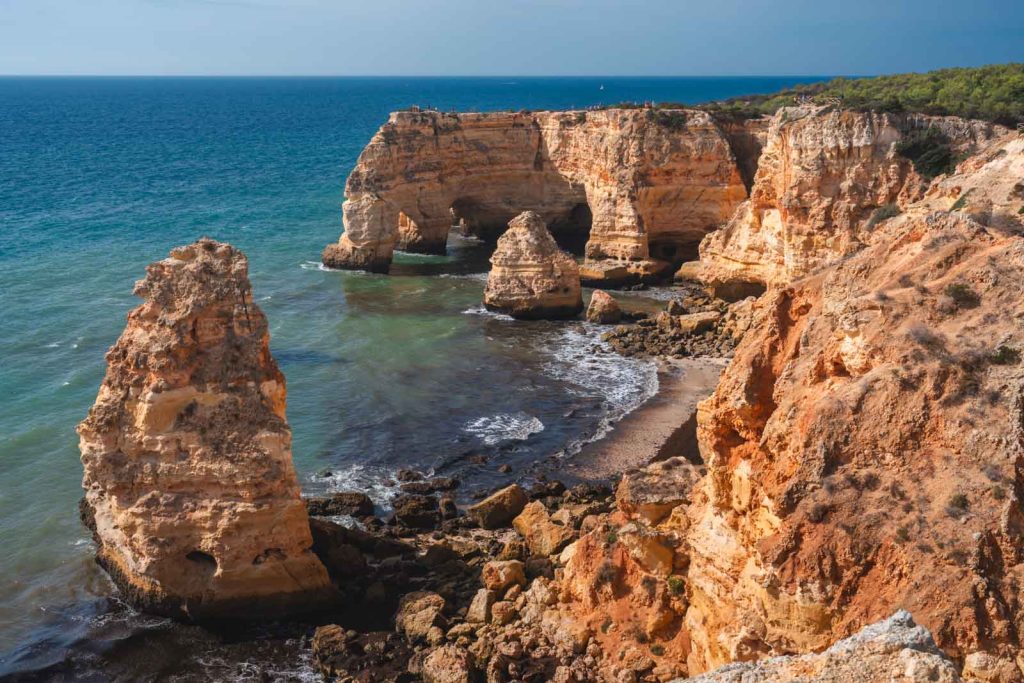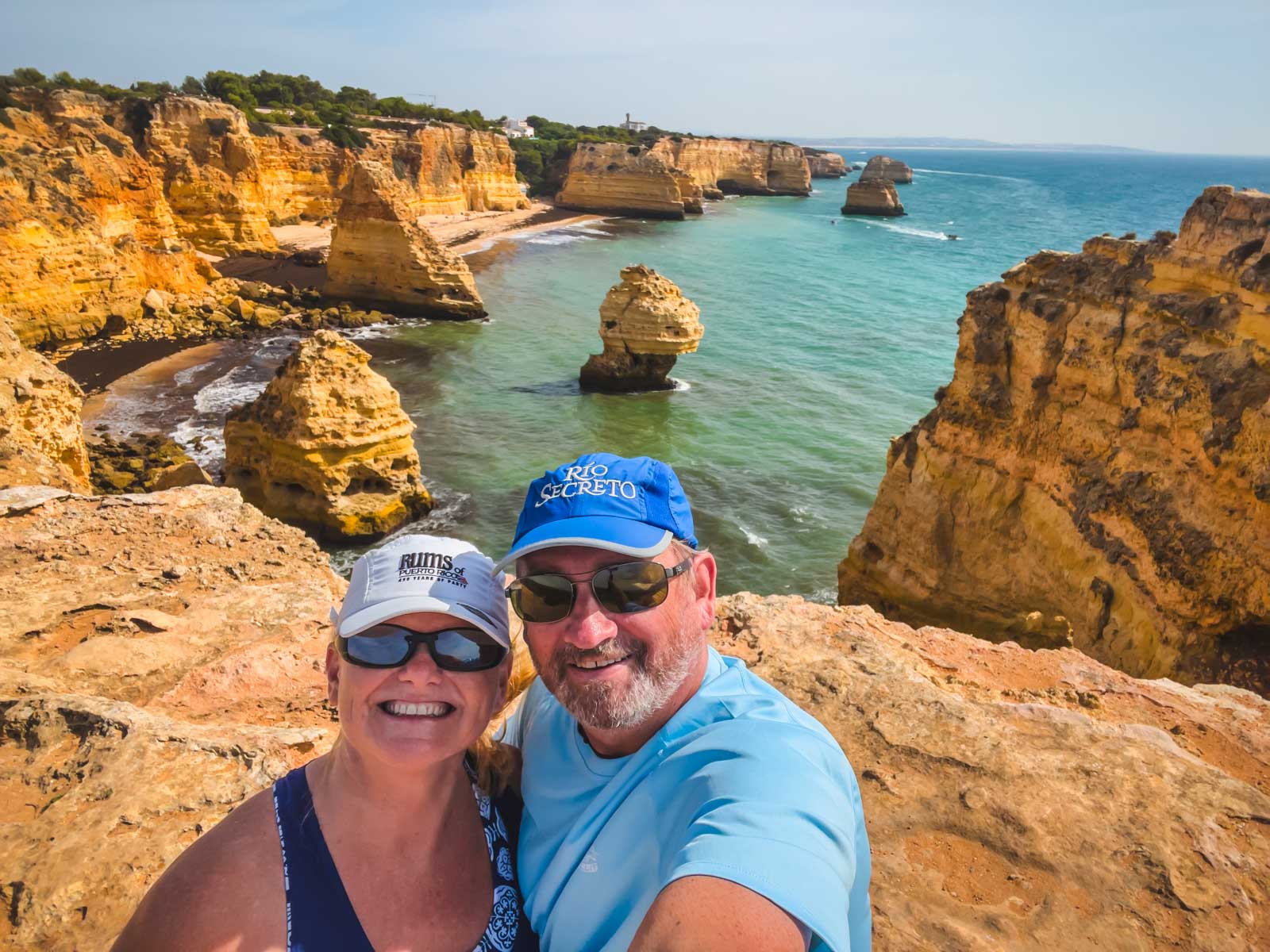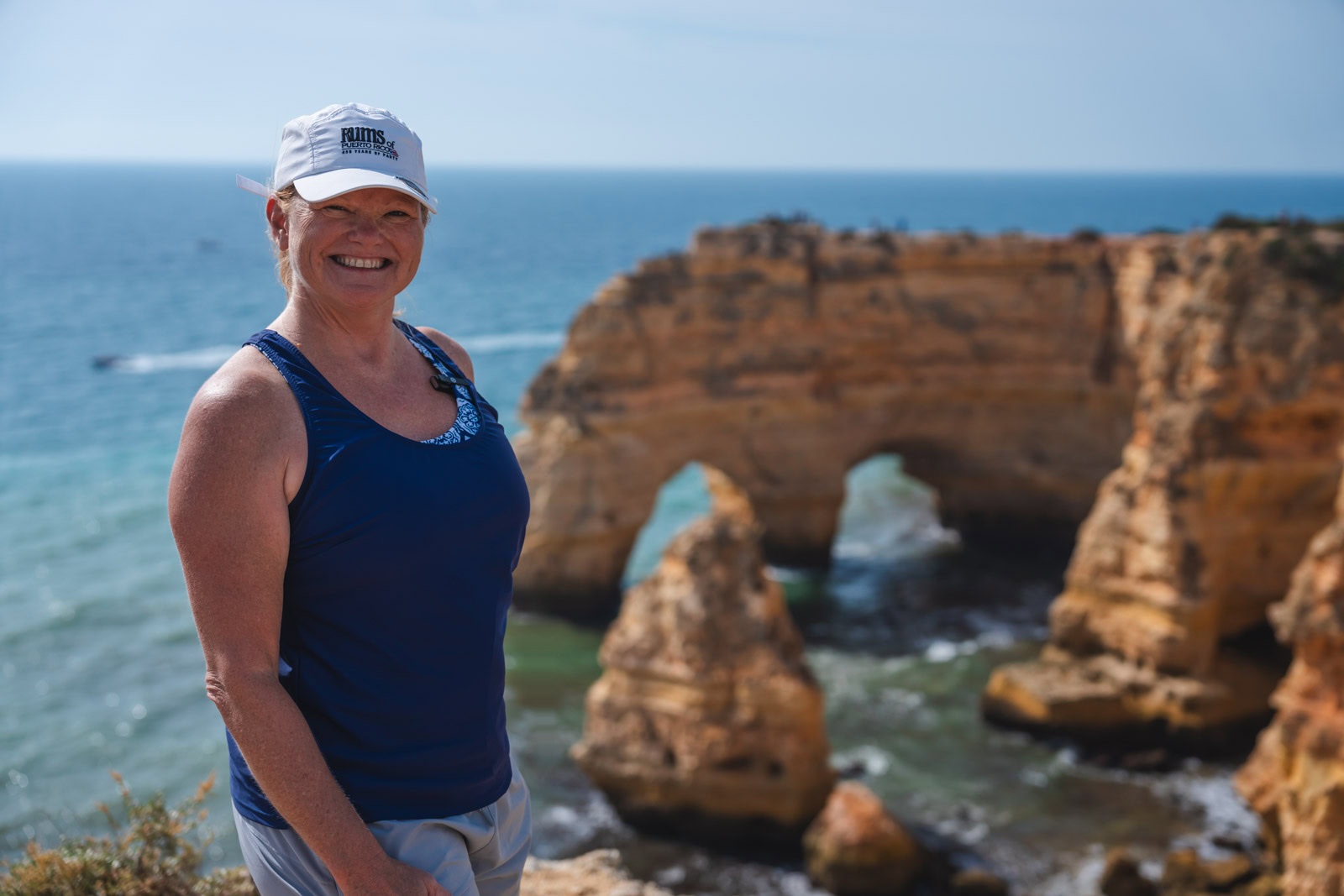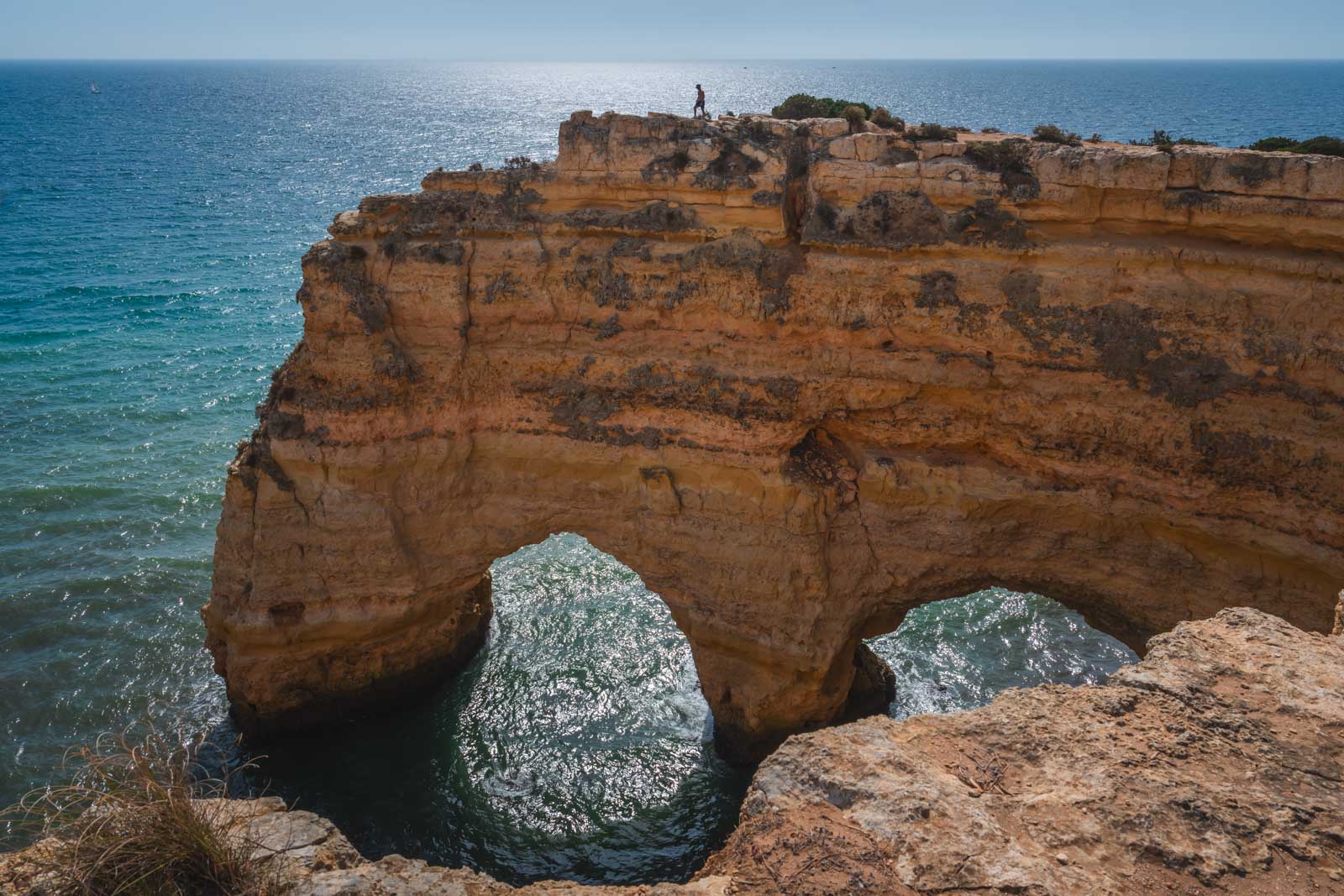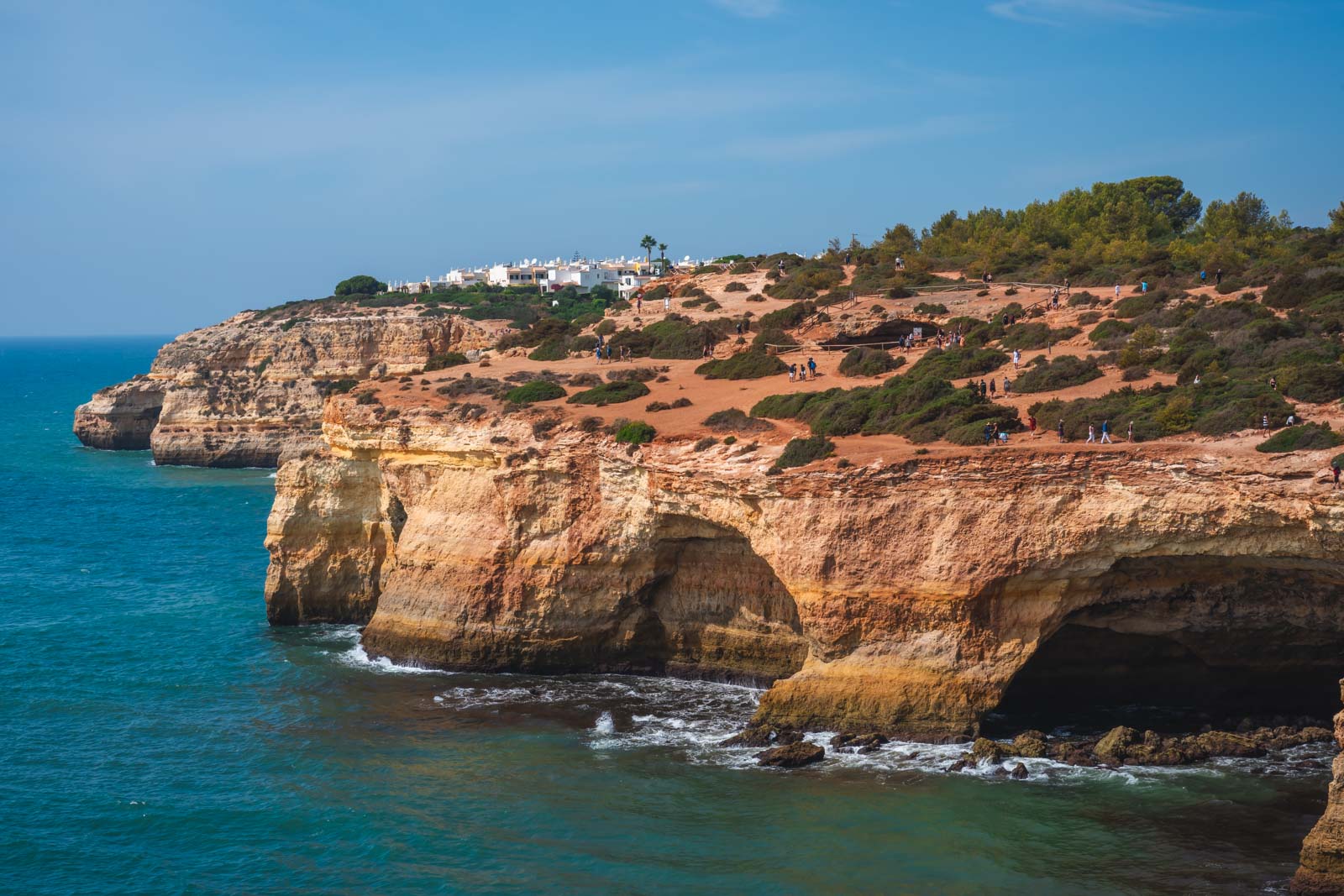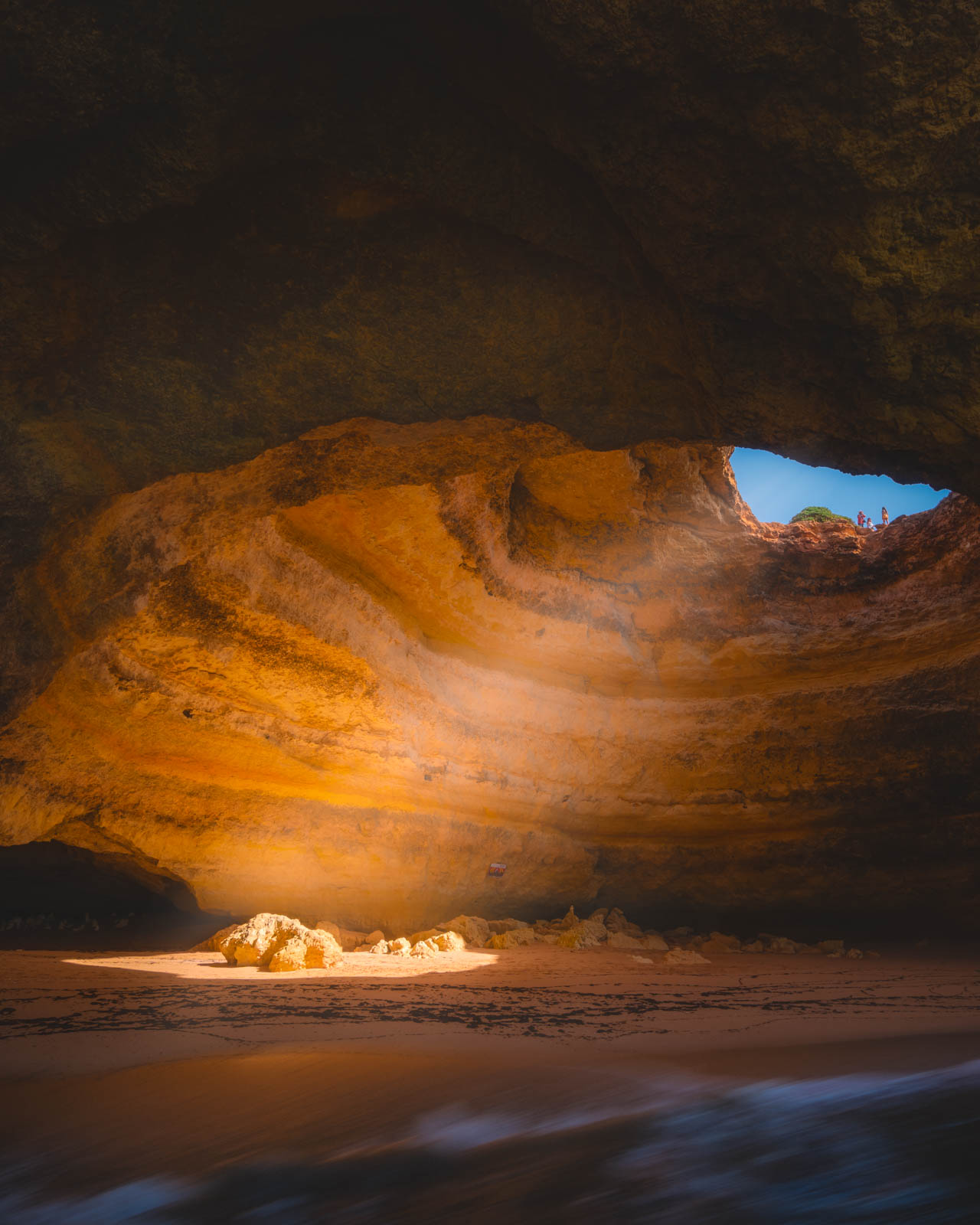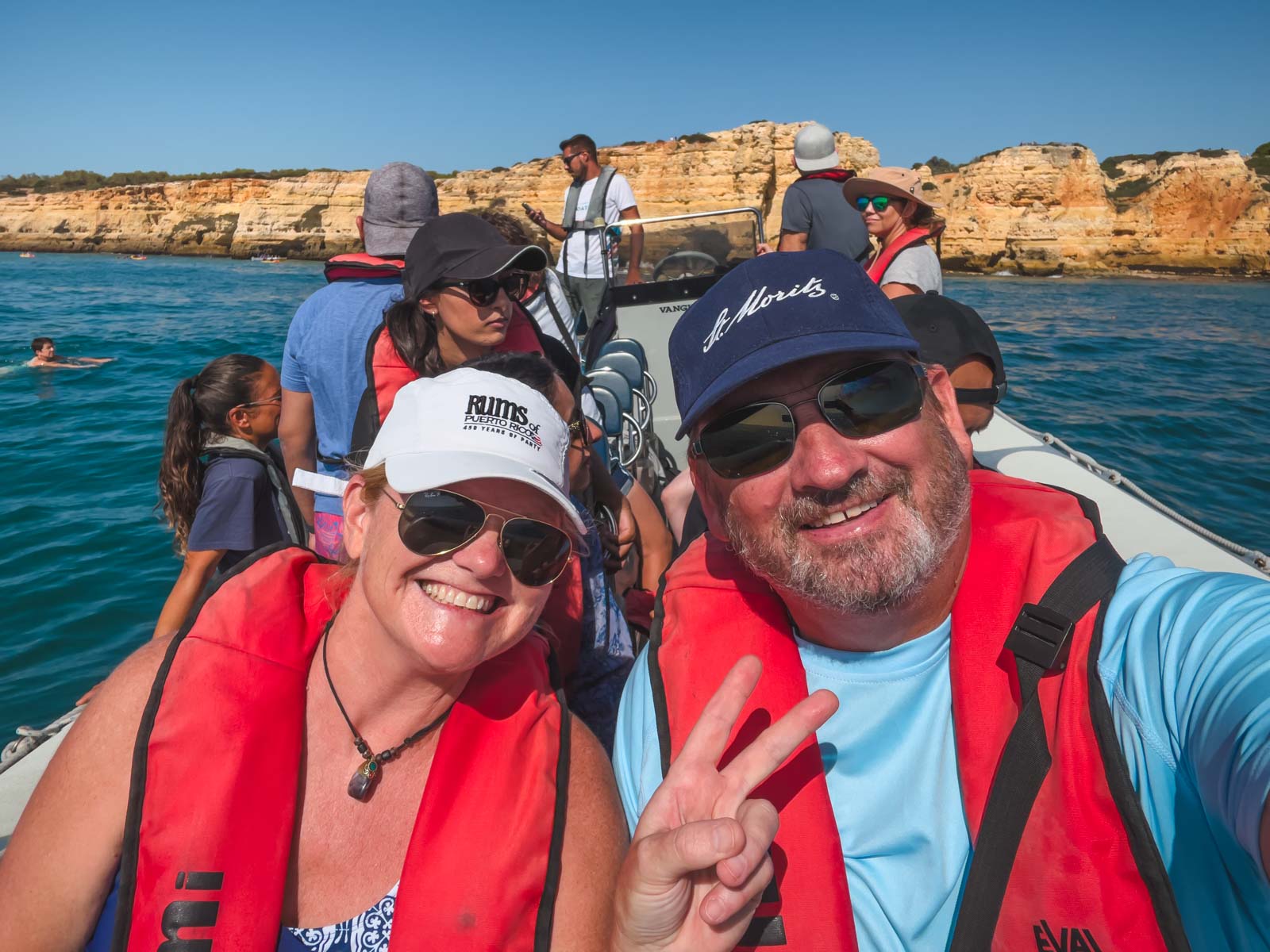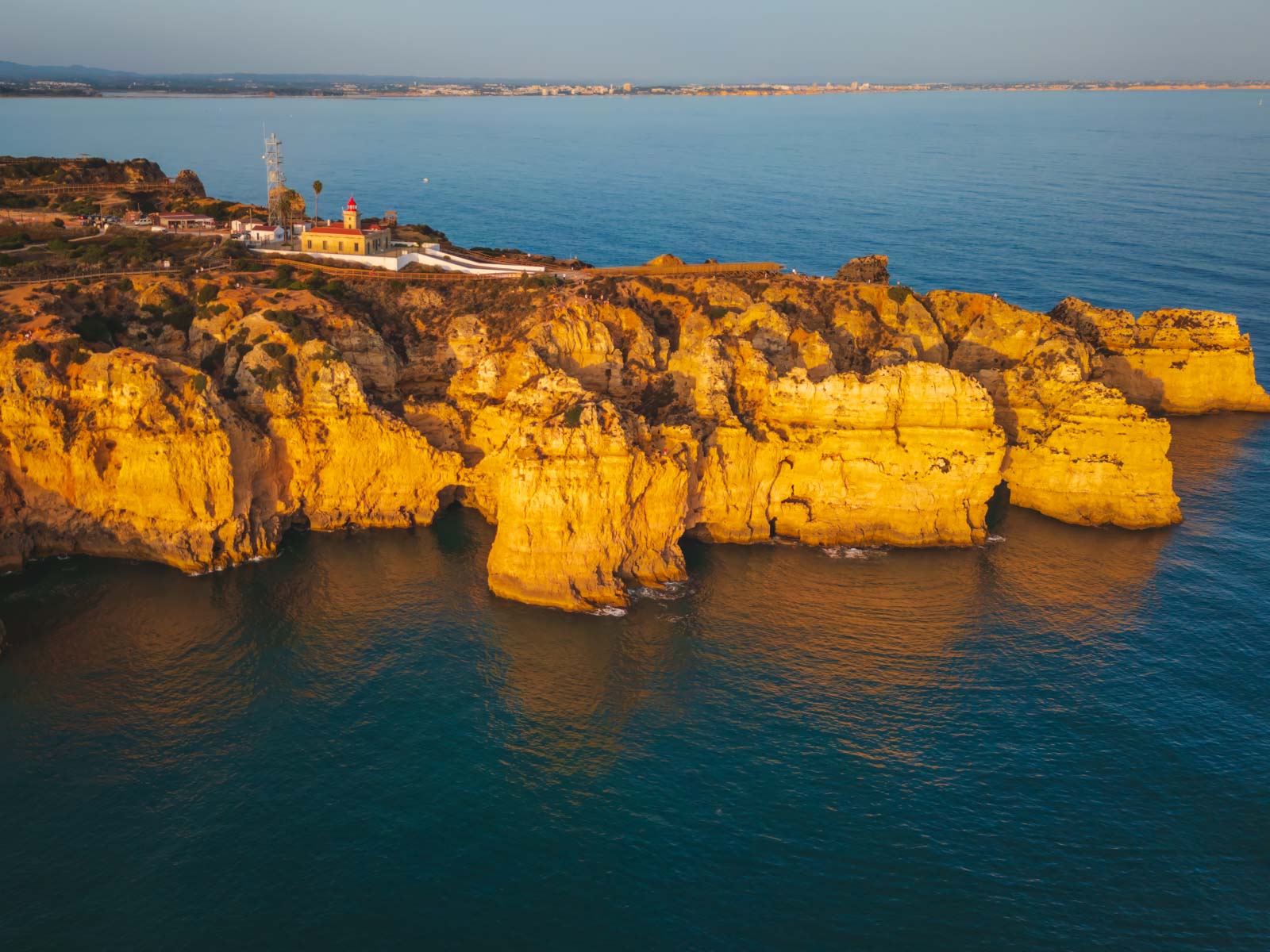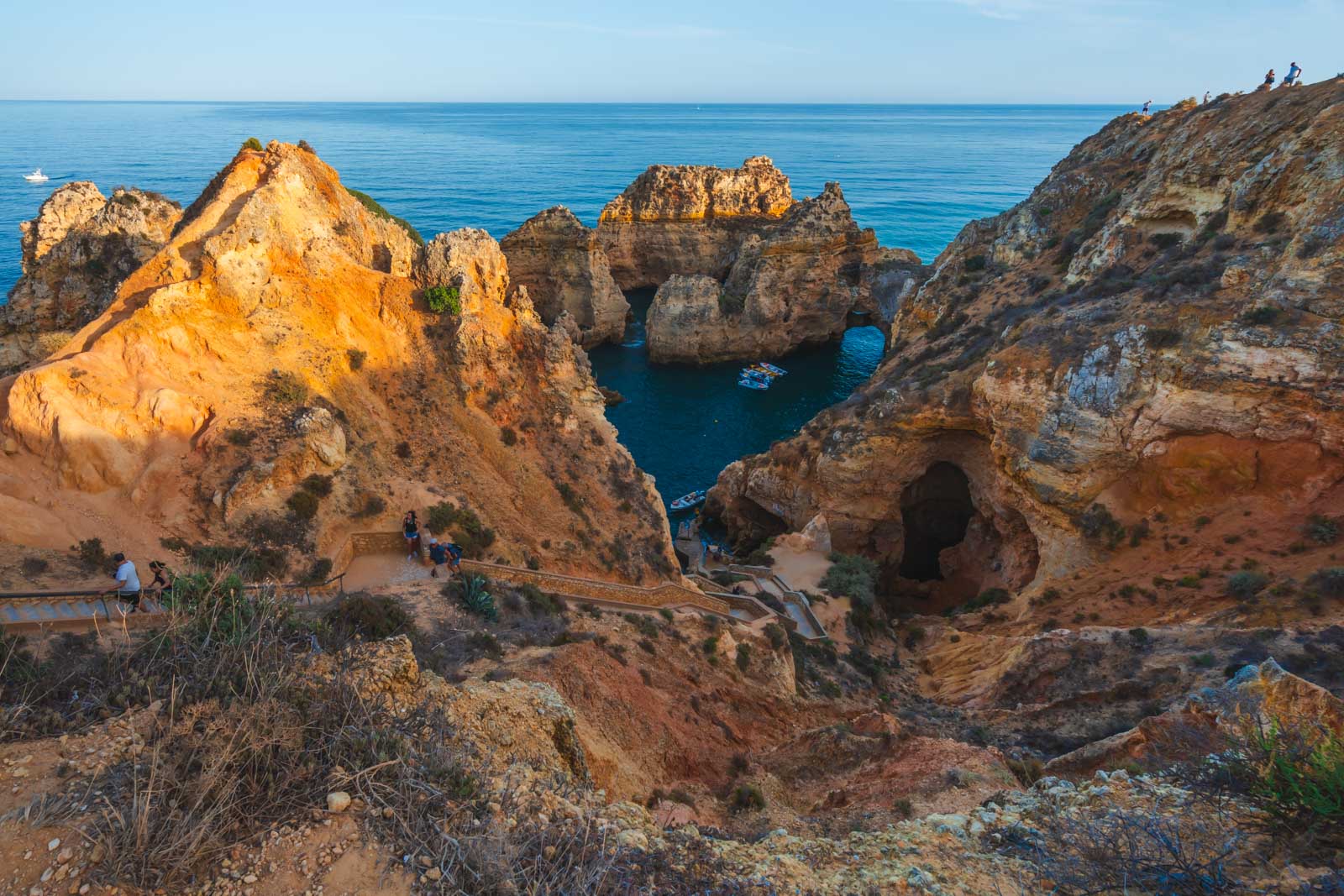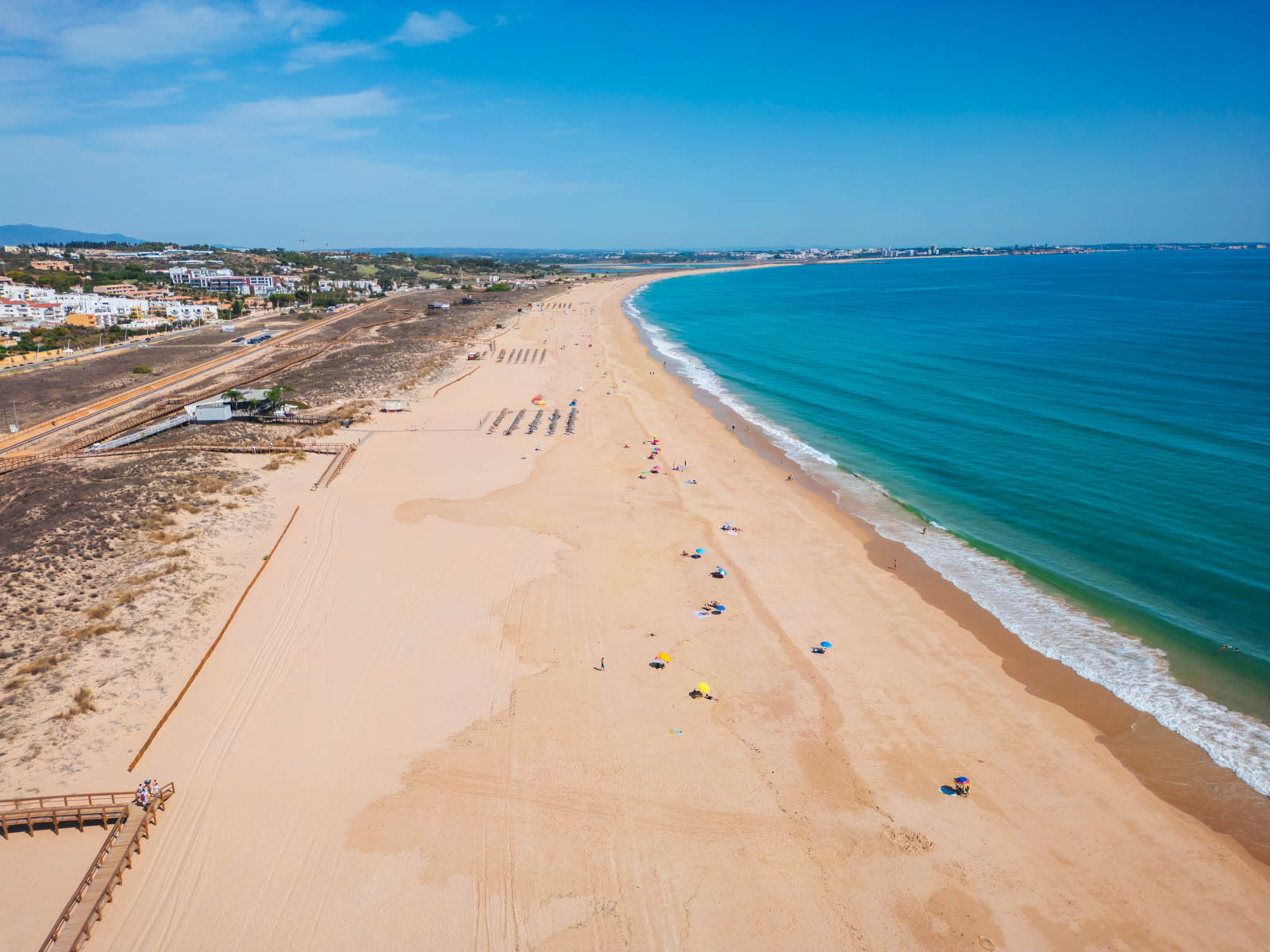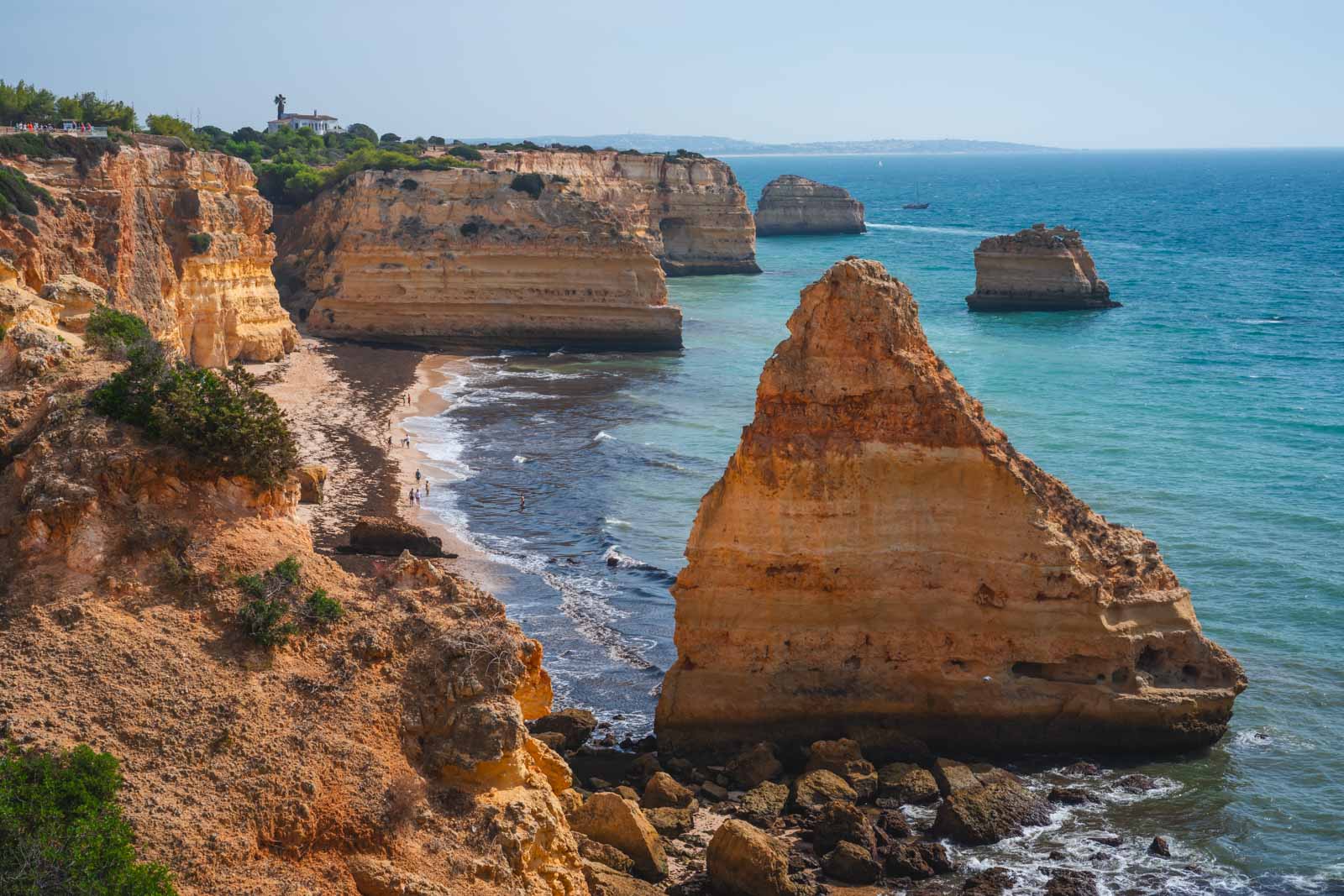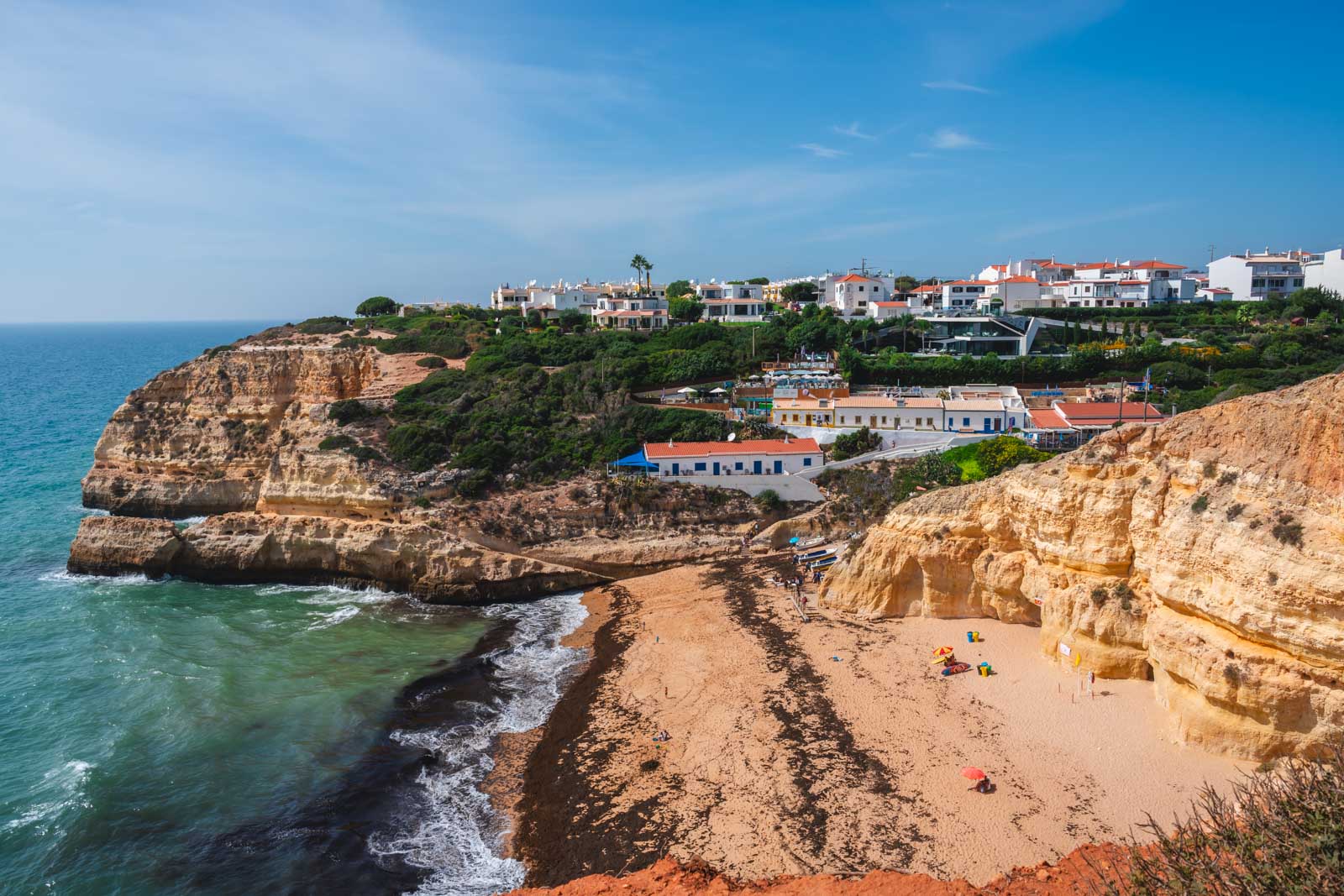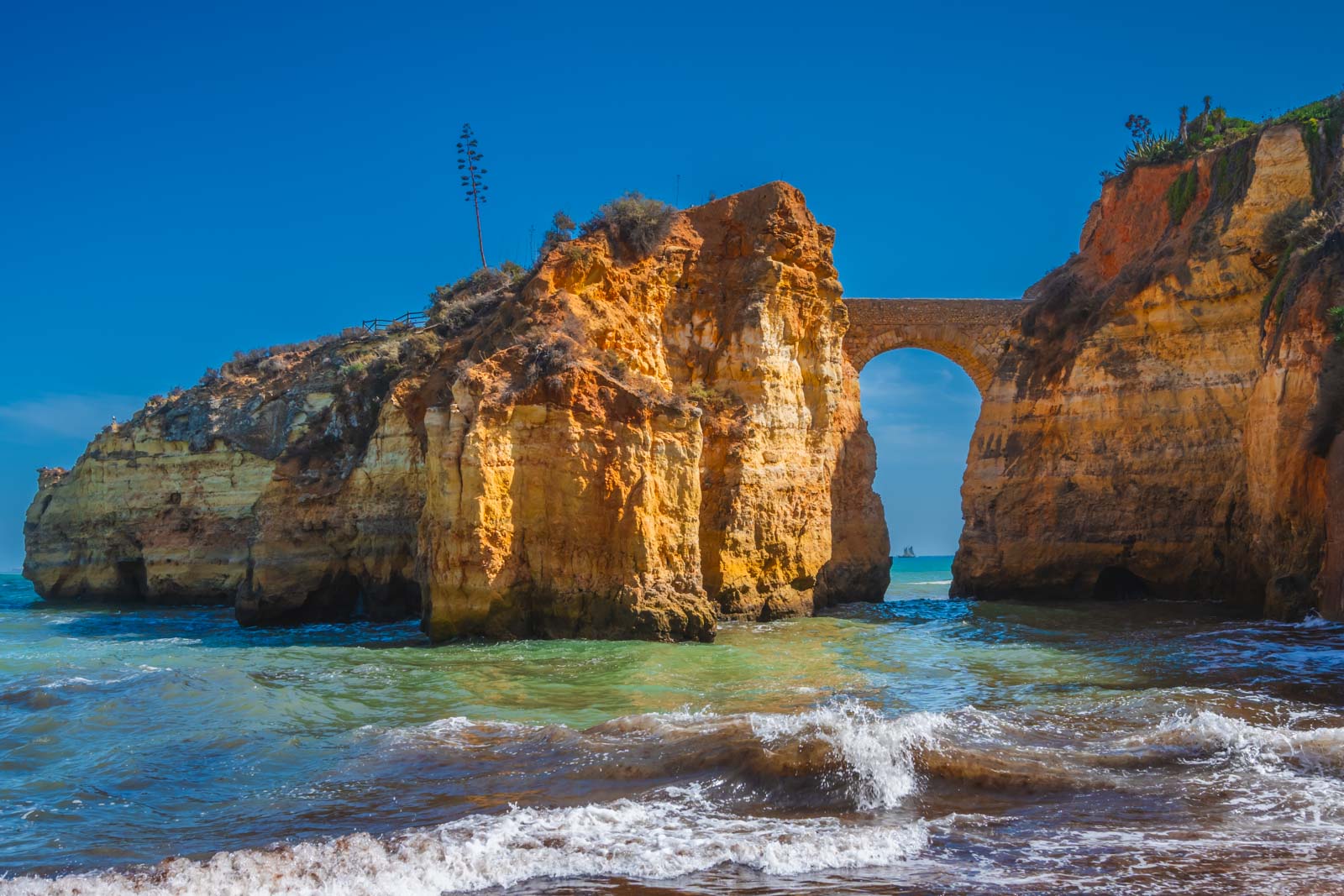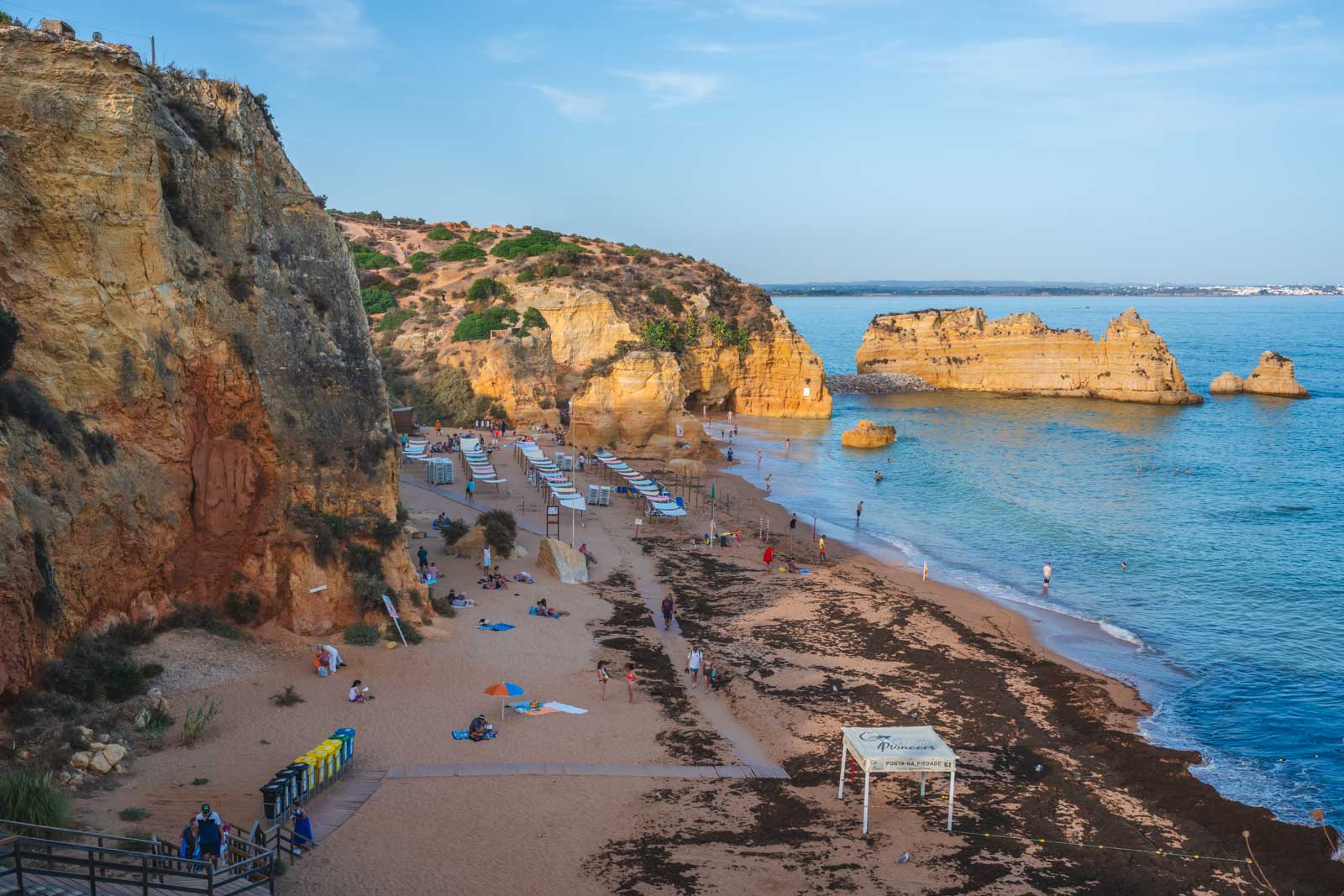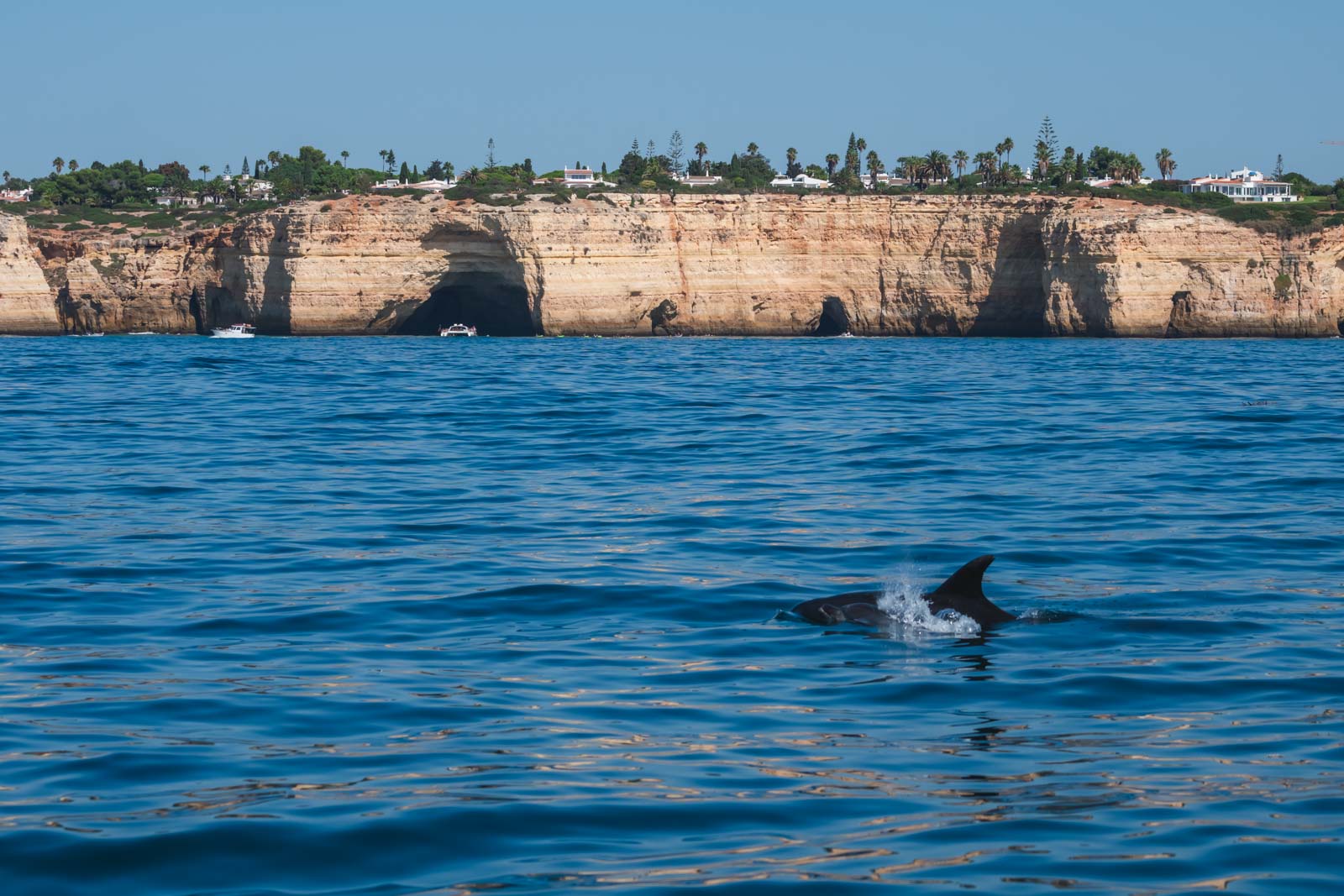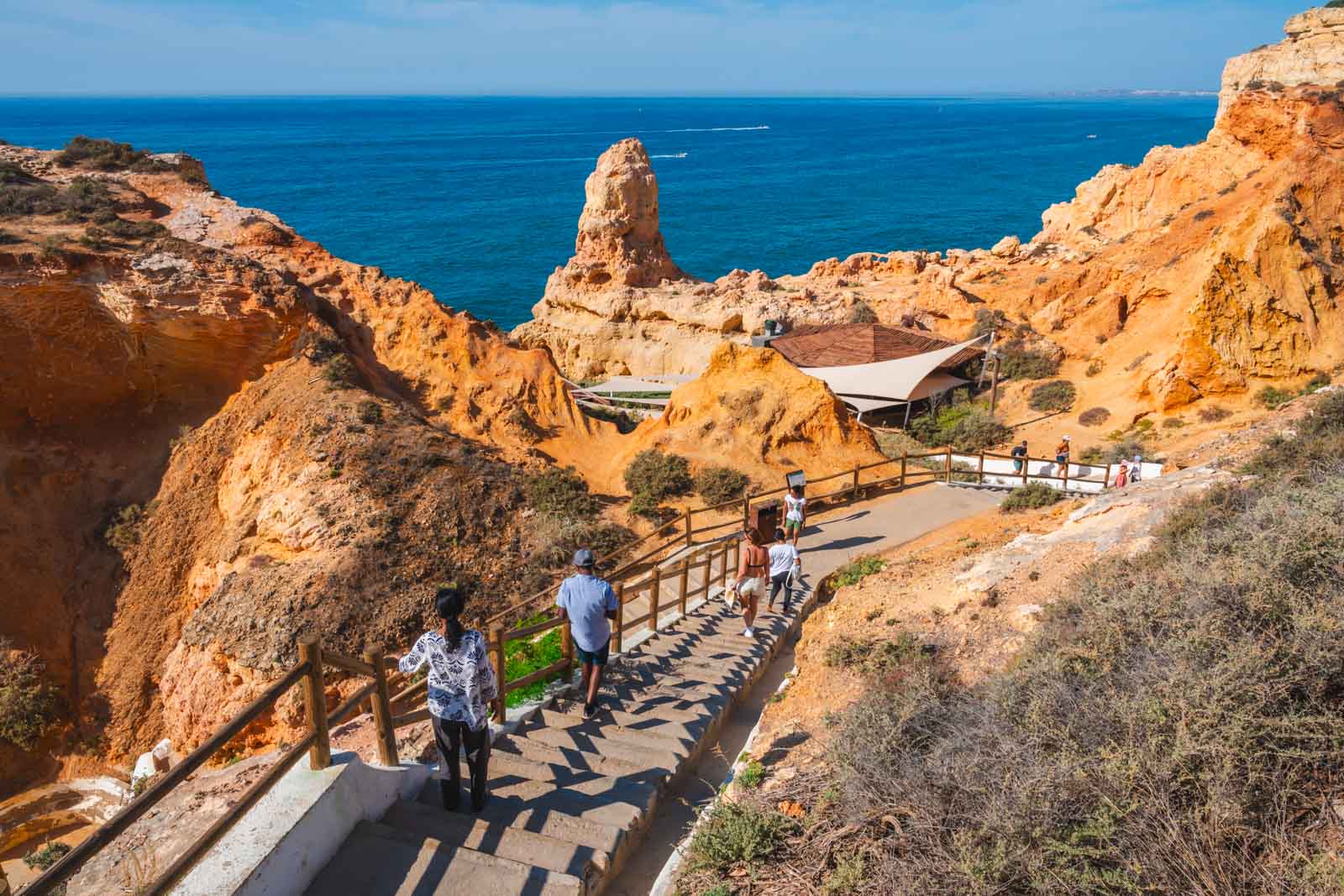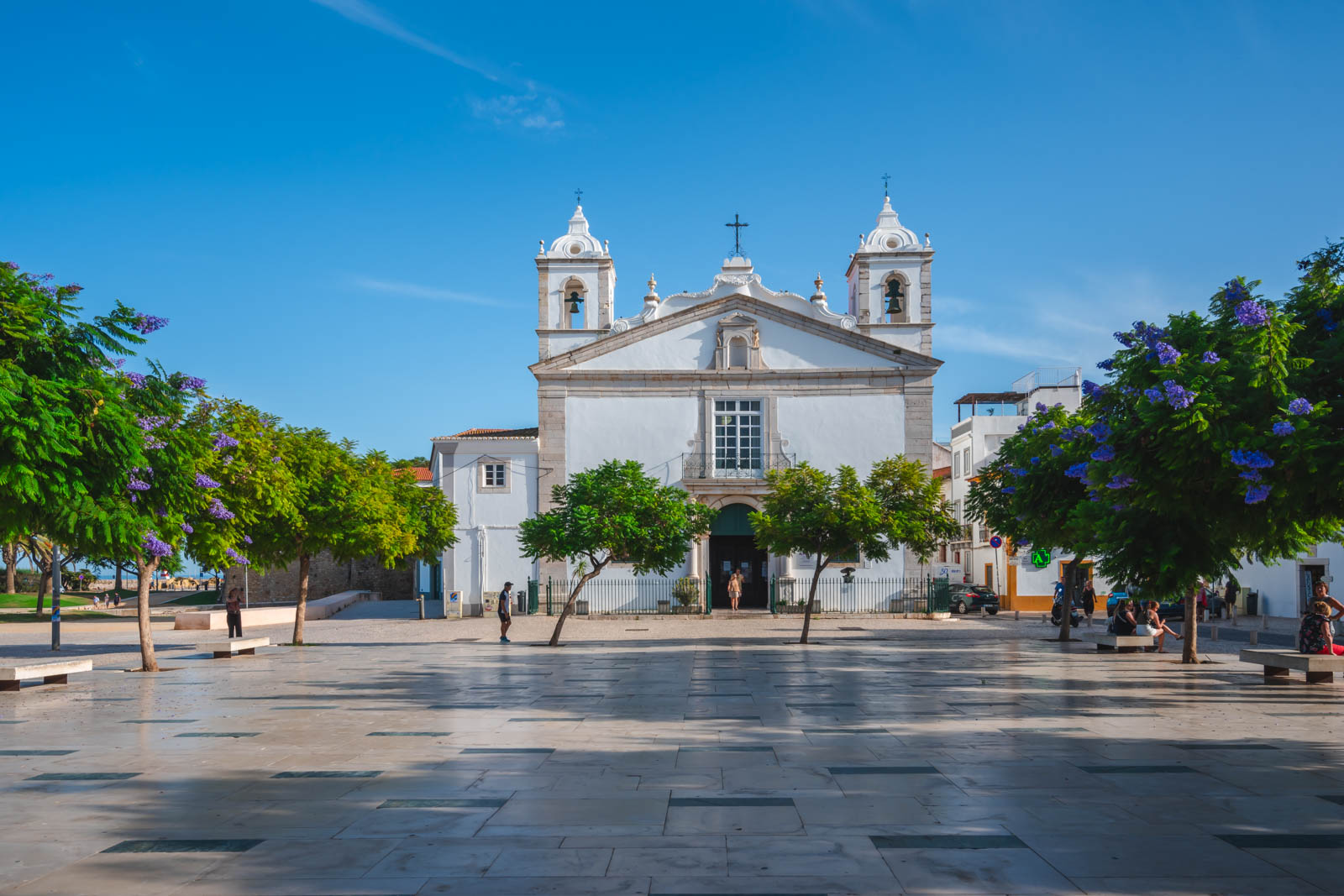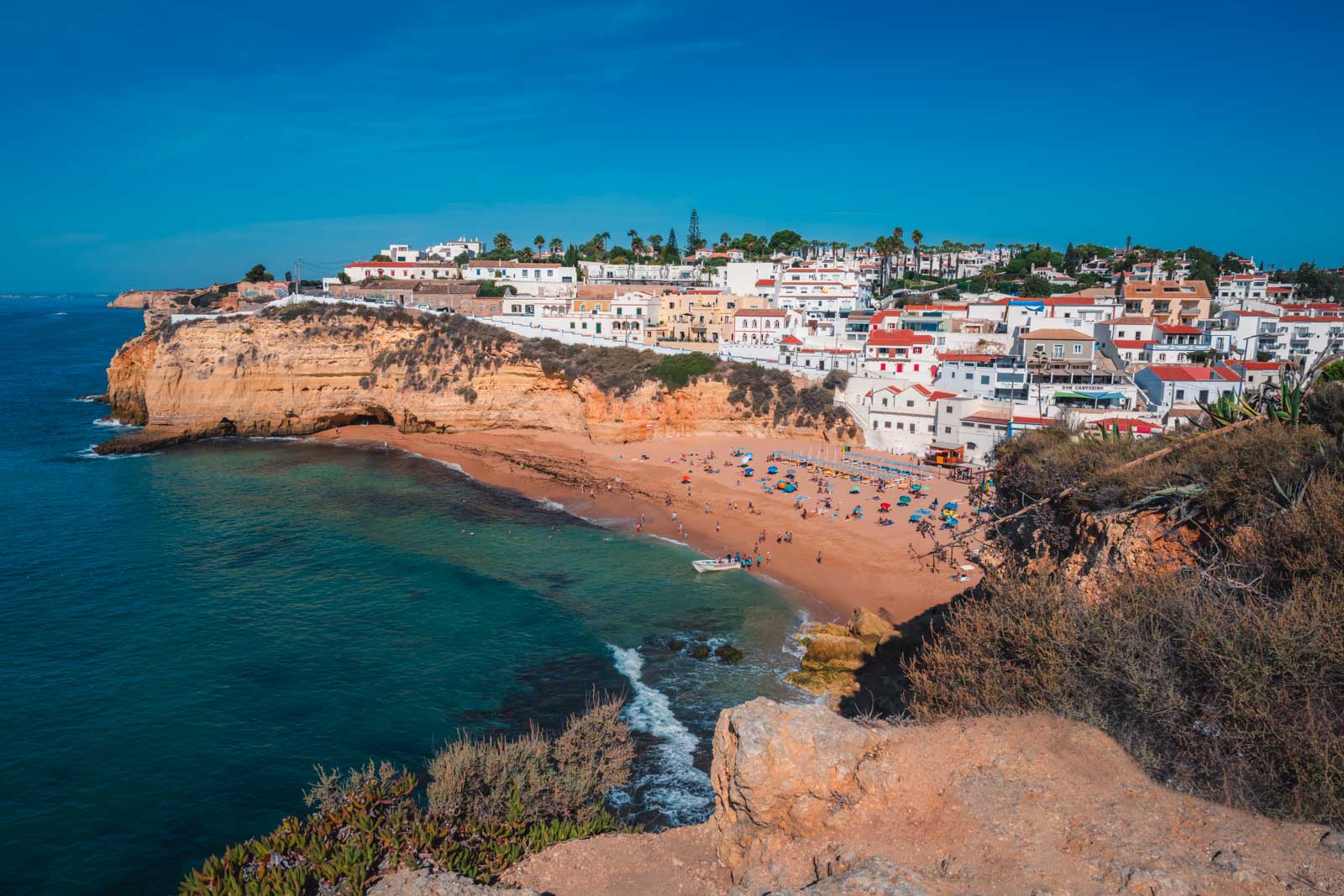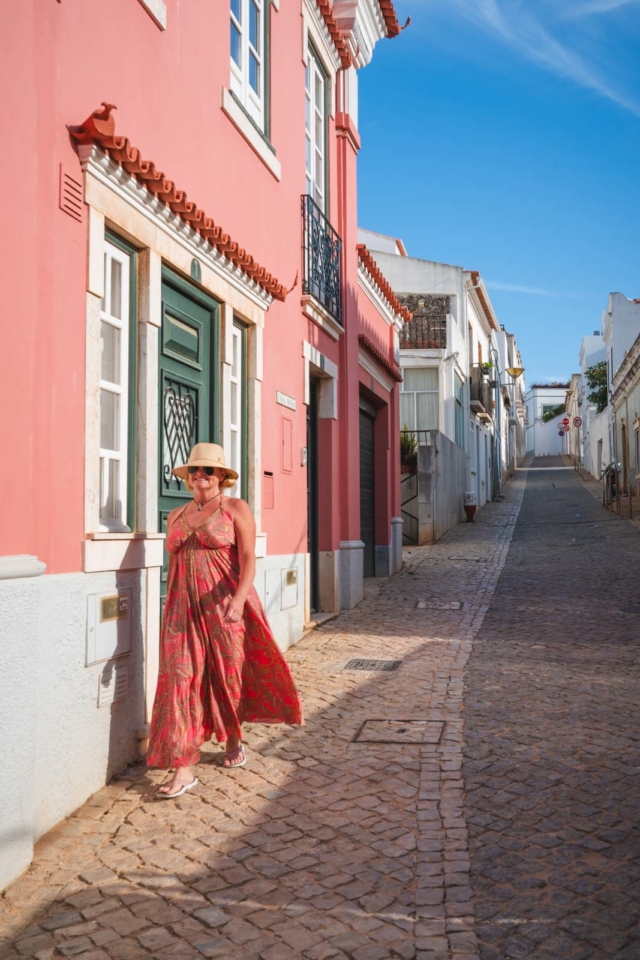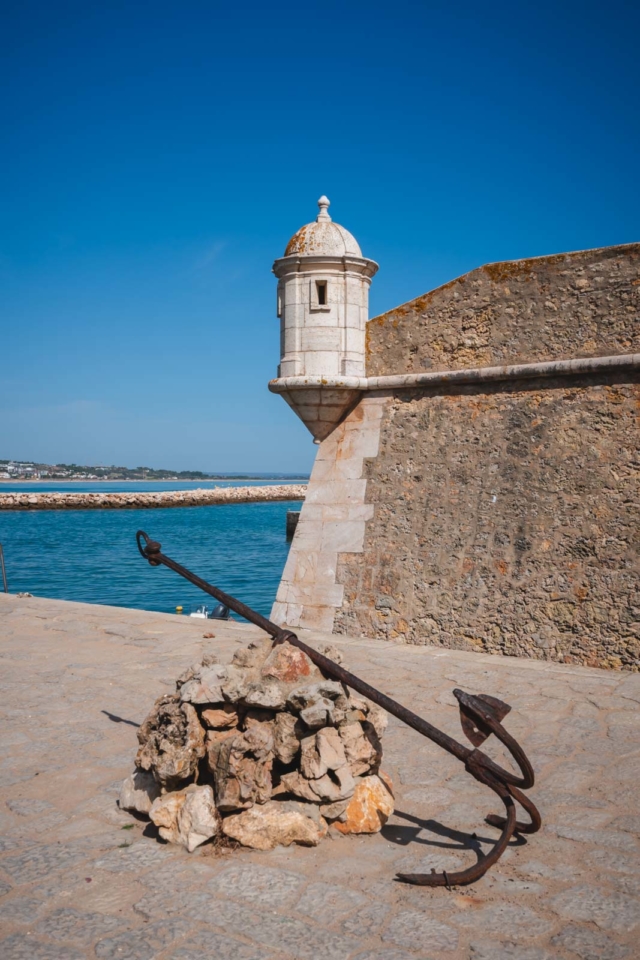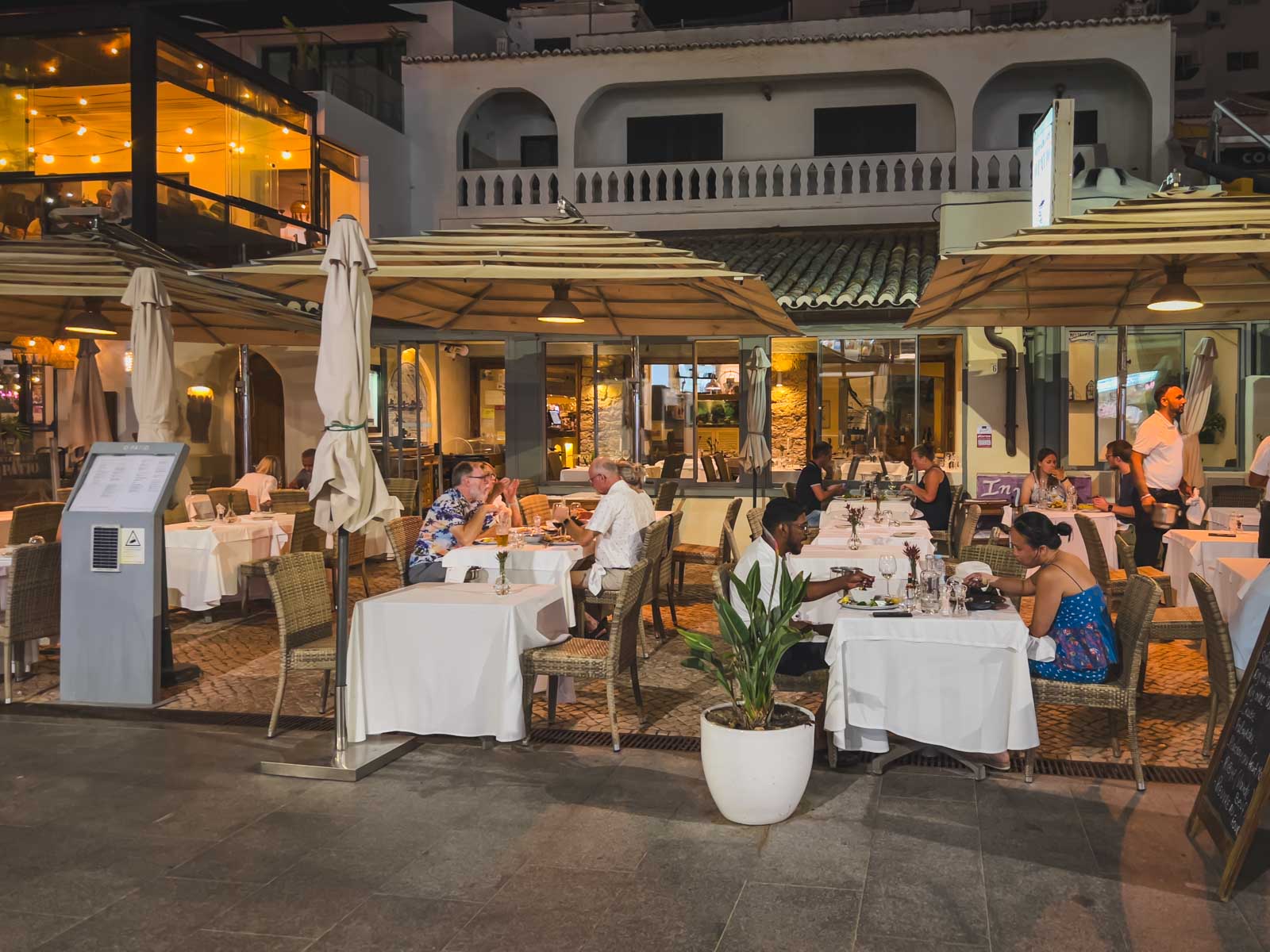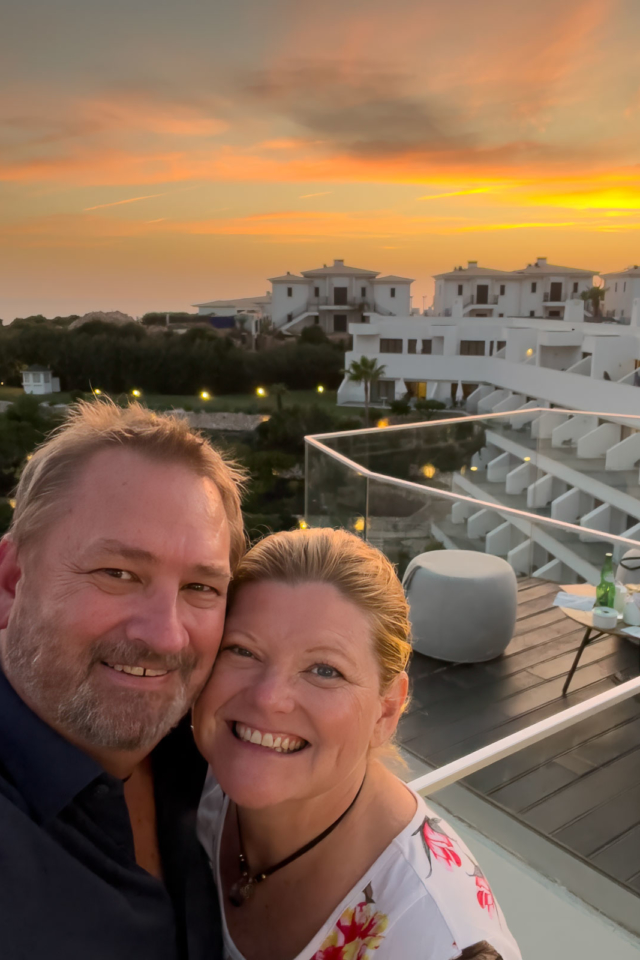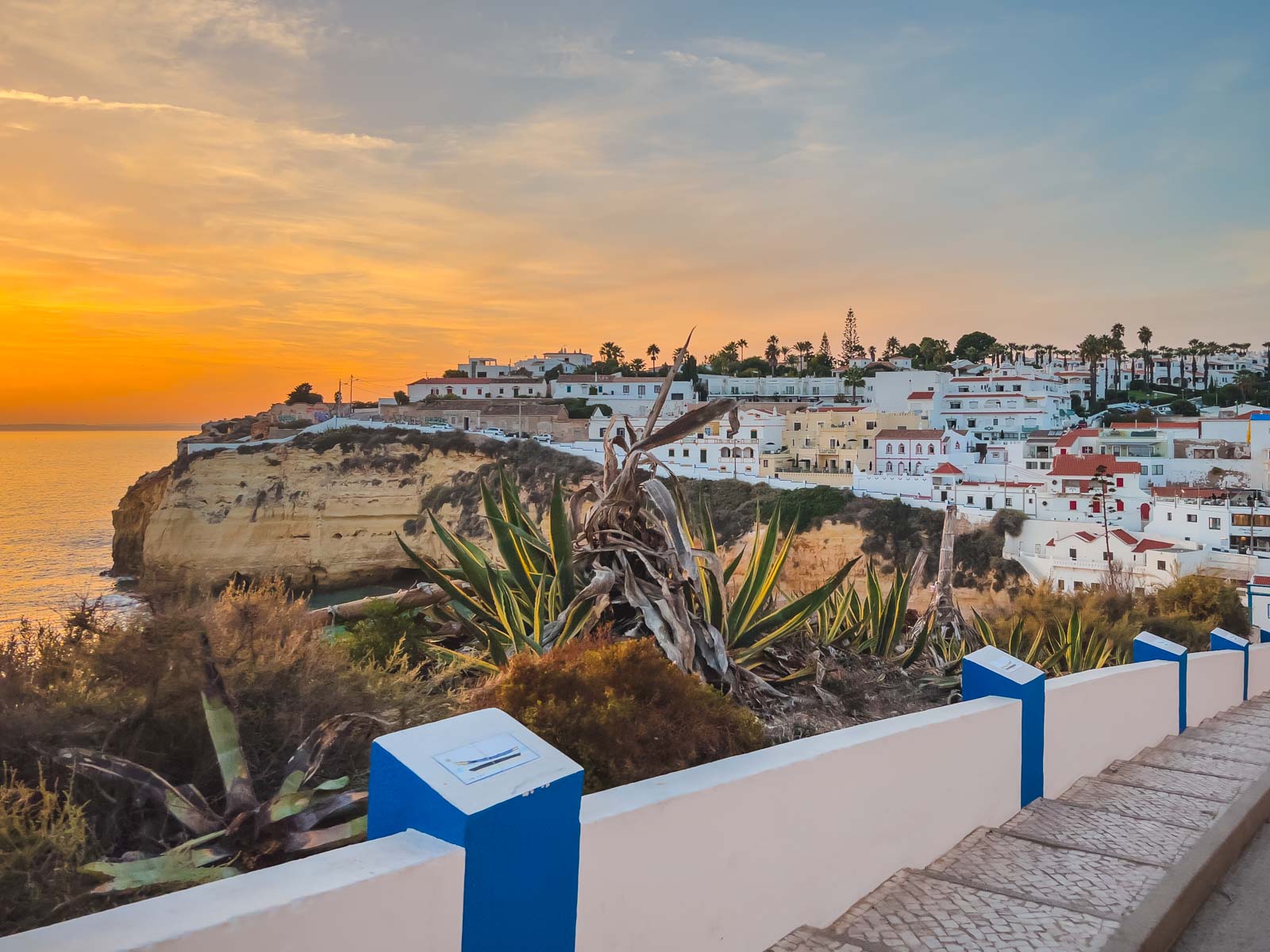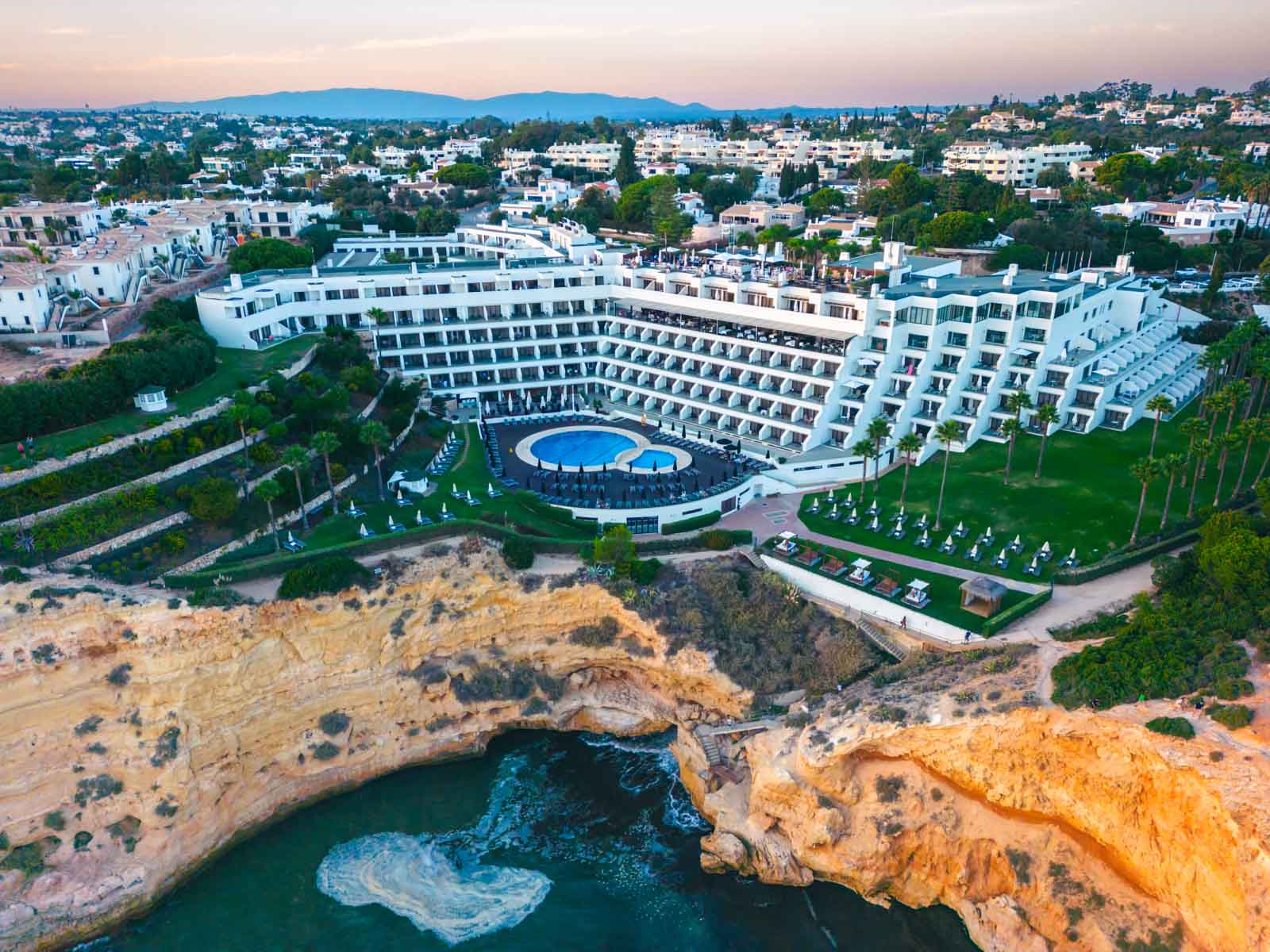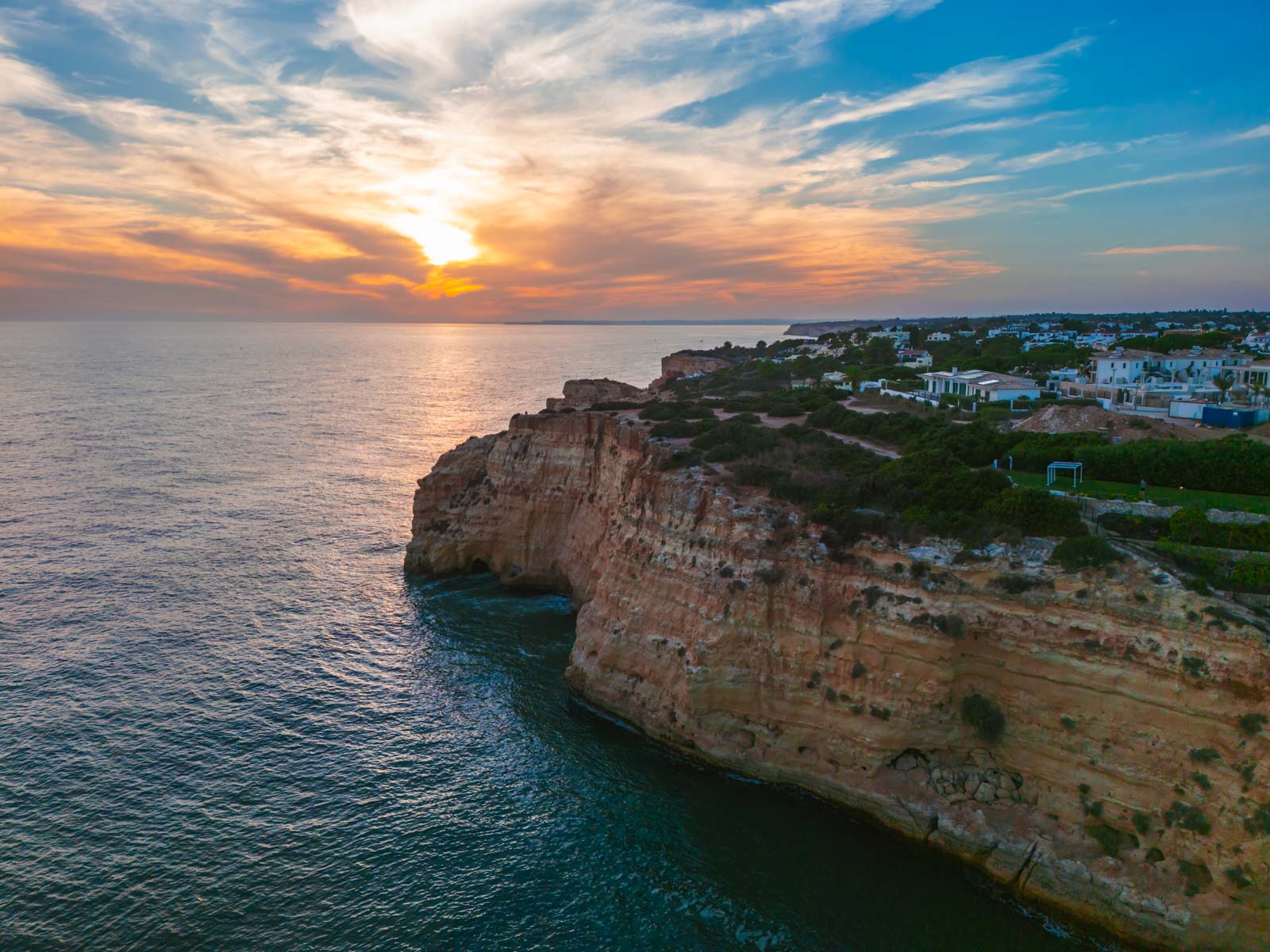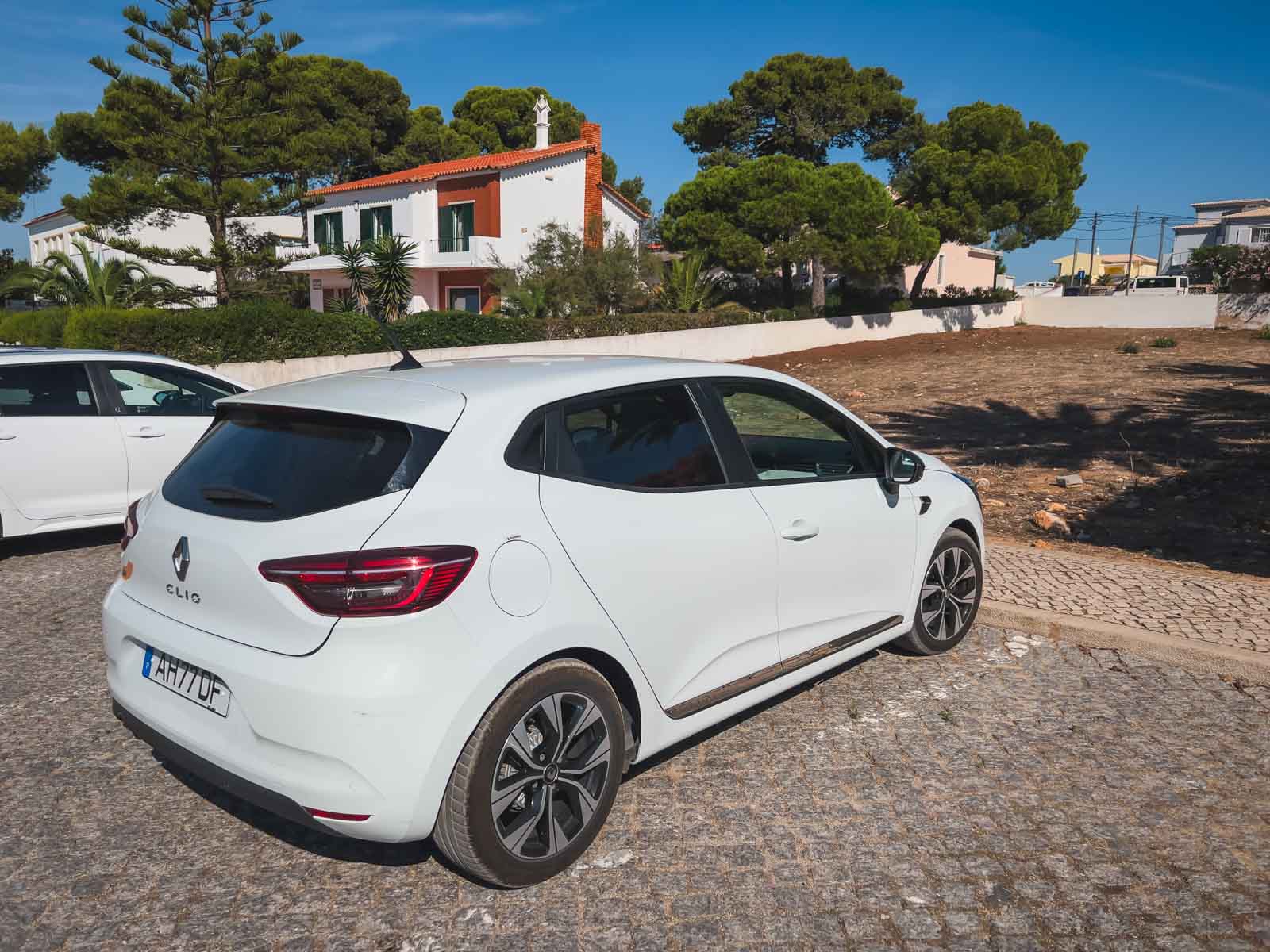The Algarve is dreamy. Located in Portugal’s southernmost region, The Algarve is famous for its golden sand beaches, towering sea cliffs, and charming fishing villages lining the coast. If you are looking for things to do in the Algarve, it can be difficult to decide where to begin. The Algarve spans a huge area of 4,997 km2 (1,929 sq mi) on Portugal’s west coast.
Luckily, most of the best things to do in the Algarve can be seen by boat tours, on an easy road trip, or even by taking shuttles and taxis to nearby beaches. From thrilling outdoor adventures to some of the best beaches in Europe, the Algarve offers something for every traveler. So, are you ready to explore the Algarve in Portugal with us? Let’s get started.
Things to Do in the Algarve
We rented a car from Lisbon and took a road trip down the west coast of Portugal to explore the breathtaking coastline of the Algarve. I don’t use breathtaking lightly, but its picturesque beaches and beauty truly took our breath away, and I must admit, we weren’t expecting such beautiful beaches and stunning rock formations. If you are planning a Portugal road trip, make sure to check car rental prices at RentalCars.com
We had some great adventures and some relaxing romantic moments. So, we have decided to break down our Algarve travel guide into sections on adventure activities, scenic views, and villages. So get ready to explore the beautiful Algarve coast and start planning your trip today.
Things to do in the Algarve – Adventure Activities
A great way to visit the Algarve is to take a road trip. You’ll have the freedom to stop wherever you want to enjoy its breathtaking views, secluded beaches, and hidden gems. Having a car gives you a lot of freedom to spend time enjoying its stunning landscapes. Compare car rental prices here.
1. Hiking the Seven Hanging Valleys Trail
One of the best things to do in the Algarve is to hike the Seven Hanging Valleys Trail. The trail runs between the beaches of Vale Centeanes and Praia da Marinha. You can start from either end, but we started at Praia da Marinha. Our hotel, The Tivoli Carvoiero, offers free tuk-tuks to the start of the trail, and we could hike all the way back. Read more: How To Hike the Seven Hanging Valleys Trail: The Ultimate Guide
The Seven Hanging Valleys trail is a 5.7-kilometer trail hugging the Atlantic Ocean. It offers beautiful beaches, natural arches, limestone cliffs, and views of the coastline. The trip starts with gorgeous views of Elephant Rock and Praia da Marinha Beach, which is often touted as the best beach in Europe. It’s a moderately challenging hike so make sure to wear good hiking shoes and carry water.
You can book this guided tour from Albufeira for highlights of the Seven Hanging Valleys including the unique opportunity to go cliff jumping at Algar Seco.
2. Benagil Cave Boat Tour
Visiting Benagil Cave in 2024 can be confusing. When we visited in October, you could only reach the beach by motorboat. We have heard from people that you can now only visit by kayak or SUP. However, when looking at booking tours, it seems that a motorboat is still the only way to go. Regardless of what mode of transportation you use, you will still need to book an organized boat tour to visit Benagil Cave. Read more: Benagil Cave in 2024 – New Rules, Helpful Tips & The Best Tours
You can reach Benagil Cave by boat, you are not allowed to step foot on its sandy beach. Due to overcrowding of boats and bodies on this tiny beach, it is heavily monitored to preserve its natural beauty. This kayaking tour (as of time of writing) is still possible to go inside Benagil to see one of the best beaches in the Algarve.
Boat tours leave from Portimão and include transfers from hotels in Carvoeiro or Lagos. You must book an organized tour with a licensed operator to ensure that you are following the law. We took this small boat tour from Portimao and loved this sightseeing tour of the Algarve coast, including going inside Benagil Cave.
3. Ponta Da Piedade
Located just outside of Lagos, Ponta da Piedade is the best place in the Algarve for sunset and one of the most beautiful coastlines in the area. This imposing headland is famous for its towering cliffs, rock arches, sea pillars, and hidden grottos. We really felt that we should have dedicated an entire day to Ponta da Piedade, hiking all the way from Lagos and taking a boat tour to see it from below.
You can book this affordable boat tour to Ponta da Piedade from Lagos. Along the way, you’ll see Praia Dona Ana, Praia Dona Ana and the sea cliffs, natural arches and secluded grottos of the magnificent coast.
You can visit Ponta da Piedade by boat tour or by driving out to the parking lot and hiking along the boardwalks and staircases climbing down to the Atlantic Ocean. There are hiking trails and plenty of boardwalks making it accessible for many. The boardwalks lead out to incredible viewpoints.
If you want to splurge, this private yacht tour to Ponta da Piedade lets you relax on a luxury cruise complete with captain and crew. It includes drinks and snacks along with paddleboards and snorkeling. What a way to see this natural wonder.
4. Surfing in the Algarve
The Algarve is known for its sea caves and sheltered coves, but it is also a great place for all levels of surfing. Portugal has some famous surf spots for intermediate and advanced surfers, but beginners will want to check out more relaxing waves with sandy bottoms.
Praia do Amado (Amado Beach) is ideal for beginners due to its gentle waves and sandy bottom. The beach is spacious, allowing beginners to practice without feeling crowded. Algarve Surf School provides surf lessons, including beginner courses and surf camps. and some cafes at Amado Beach.
Mareta Beach in Sagres offers smaller, more manageable waves, perfect for beginners. The beach is well-protected, ensuring safer conditions for novice surfers.
Praia da Rocha (Portimão) – Praia da Rocha is another excellent spot for beginners. The waves here are typically smaller and more forgiving, making it a great place to learn the basics of surfing. Algarve watersport offers beginner surf courses.
Discover Beaches of the Algarve Region
The western coast of Portugal is known for its sandy beaches and crystal clear waters, and the golden sands of the Algarve are no exception. There are several beautiful beaches in the Algarve, attracting vacationers from around the world to enjoy their natural beauty framed by rocky cliffs and sea caves.
5. Praia da Marinha Beach
Praia da Marinha Beach is often listed among the world’s most beautiful beaches thanks to its dramatic limestone cliffs and stunning rock formations framing the golden sand. There are no amenities on the beach, and that is what makes it so special. Visitors can swim in its sheltered cove or simply enjoy the view from above along the Seven Hanging Valleys Trail. There are so many beautiful beaches in the Algarve, and with this being named the star, you know it has to be absolutely spectacular.
It can be difficult to get to if you are not staying in the area, but we stayed at the Tivoli Carvoiero, and they offered shuttles to Praia da Marinha Beach. There are local buses that will take you to the beach from Carvoiero, and you can take a taxi or Uber if you don’t have a car.
Boat trips also stop at Praia da Marinha Beach to marvel at it from the sea.
6. Benagil Beach
Not to be confused with Benagil Cave, which has its own picturesque beach, Benagil Beach is located in the town of Benagil. There are sun umbrellas for rent, you can book boat trips and sightseeing tours from here and you can enjoythe restaurants and facilities of the lovely town.
7. Ponta de Estudantes
Lagos has lovely beaches, and there are a few beaches that stand out, most notably Ponta de Estudantes which is framed by the Roman Bridge. Despite its name, the bridge is not actually from the Roman era is believed to have been built in Medieval Times.
The rugged cliffs, azure waters, and the ancient stone bridge create a picturesque scene perfect for photography. Even the walkout is fun, traversing through sea caves, soft sand, and high rocky cliffs.
8. Praia Dona Ana
Praia Dona Ana is one of the most famous and picturesque beaches in the Algarve. It is located just a little farther from Praia de Estudantes and from the center of Lagos. Like many of the beaches in the Algarve, its dramatic cliffs, and crystal-clear turquoise waters are what make it special.
The clear and calm waters are ideal for swimming and snorkeling. The underwater rock formations and marine life provide excellent conditions for exploring the underwater world. For those looking to relax in comfort, sun loungers and umbrellas are available for rent.
There is parking available near the beach, making it easy for visitors to access Praia Dona Ana by car. However, during peak season, make sure to arrive early to secure a parking spot. The beach has access points that make it easier for people with mobility issues to visit. Ramps and pathways lead from the parking area down to the beach.
There are These establishments offer a range of options from light snacks to full meals, providing a convenient place to refuel.
Nature and Wildlife of the Algarve Region
9. Ria Formosa Natural Park
This protected lagoon system stretches 60 km from Ancão Peninsula to Manta Rota and is a haven for birdwatchers. Take a boat tour to spot flamingos and discover the traditional fishing villages within the park. This protected area is a a series of barrier islands, salt marshes, tidal flats, and a lagoon that covers over 18,000 hectares and comprises. It is a vital habitat for a wide variety of wildlife and a key stopover for migratory birds.
The barrier islands within Ria Formosa, such as Ilha de Faro, Ilha da Culatra, Ilha da Armona, and Ilha de Tavira, boast some of the most unspoiled and beautiful beaches in the Algarve.
The traditional fishing villages within Ria Formosa, such as Cacela Velha and Santa Luzia, provide a glimpse into the local culture and way of life. Visitors can explore the charming streets, sample fresh seafood, and learn about the region’s rich maritime history.
Ria Formosa is easily accessible from several popular Algarve destinations, including Faro, Olhão, and Tavira. Its proximity to these towns makes it a convenient day trip or a longer stay for those looking to immerse themselves in nature.
10. Dolphin Watching
The waters off the Algarve coast are home to various species of dolphins and when taking a boat tour, chances are you will spot dolphins. We happened to see them on our Benafil Cave tour, but there are specific dolphin-watching boat tours that you can take to enjoy the stunning coastline of the Atlantic Ocean. Join a dolphin-watching tour from Vilamoura or Albufeira for a chance to see these magnificent creatures in their natural habitat.
11. Algar Seco
Located just a short walk from the town of Carvoiero and the Tivoli Carvoier Hotel, Algar Seco is a coastal rock formation where visitors can explore its caves and grottoes.
One of the highlights of Algar Seco is the network of grottoes and caves that can be explored by foot or by boat. The most famous is “A Boneca” (The Doll), a rock formation resembling a doll with “eyes” that offers spectacular views of the Algarve coastline.
The area features boardwalks and viewing platforms that allow visitors to safely explore the cliffs and enjoy panoramic views of the Atlantic Ocean. The boardwalks offer easy access to various lookout points, making it a great spot for photography.
At low tide, natural pools form among the rocks, creating secluded spots for a refreshing dip. These sheltered pools are perfect for a more relaxed swimming experience. But the real draw is sunset. Algar Seco attracts tourists and locals alike to watch the sun casting its warm glow over the rock formations and Atlantic Ocean, creating a magical and romantic atmosphere.
Visit Charming Villages
The towns and villages of the Algarve are beautiful. With whitewashed houses dot the landscape around high sea cliffs, historical buildings line the historic centers, and each town has a strong cultural heritage; it is worth visiting some of the towns and historical sites of the Algarve.
Lagos
Lagos is one of the most popular towns in the Algarve. It seems that most of the Expats have chosen to purchase condos on their cost and for a good reason. It has stunning beaches, from the typical Algarve beaches framed by dramatic sea cliffs to Meia Praia, which is one of the longest beaches in the Algarve. Taking a walk along the boardwalk is beautiful.
From its beaches to its charming Old Town ther is something for everyone. This is a place to come for an afternoon of shopping and tasting local seafood and traditional Portuguese dishes such as grilled sardines, cataplana, and piri-piri chicken.
Carvoiero
We loved staying near this town. From our hotel we had free tuk tuk shuttles to Carvoiero, but it was also an easy walk. Even though it is getting very popular, Carvoeiro still retains the charm of a traditional Portuguese fishing village with its whitewashed houses, narrow streets, and friendly locals.
There are so many things to do here that we think it is the best location for the Algarve and exploring the most beautiful coast of the region. The town’s main beach, Praia de Carvoeiro, is a picturesque secluded cove surrounded by cliffs, offering golden sands and clear, calm waters ideal for swimming and sunbathing. Seven Hanging Valleys is just a short drive or hike away and Algar Seco is located just outside of Town. We suggest staying at Tivoli Carvoiero for at least a night or two.
Tavira
Tavira is one of the Algarve’s most picturesque towns, with its cobbled streets, historic churches, and Roman bridge. Explore the old town, visit the castle, and enjoy a leisurely boat trip along the Gilão River.
Albufeira
Albufeira has a beautiful old town and is located in central Algarve. It has plenty of beaches and attractions like Benagil Cave and dolphin-watching tours. It’s also known for its lively nightlife and is a great place to experience both relaxation and entertainment. Stroll through the old town, enjoy the bars and clubs, and unwind on the beautiful Praia dos Pescadores.
Vila Real de Santo António
Vila Real de Santo António is located at the easternmost end of the Algarve, right on the Portuguese-Spanish border, Spanish border along the Guadiana River. Founded in 1774 by the Marquis of Pombal, Vila Real de Santo António was built as a model town following the devastating earthquake of 1755. The town’s layout reflects the Pombaline architectural style, with wide streets and uniform buildings designed to prevent fire and facilitate urban planning.
Vila Real de Santo António’s location along the Guadiana River serves as a natural boundary between the two countries offers stunning views and a tranquil atmosphere. Visitors can enjoy walks along the riverbank, take a boat trip, or even cross the river to explore the neighboring Spanish town of Ayamonte.
The nearby beaches of Praia de Santo António and Praia da Manta Rota are known for their golden sands and clear waters. These beaches are less crowded than those in the central Algarve, providing a more relaxed and peaceful beach experience.
Explore Historical Sites
The Algarve may be known for its watersports and beautiful beaches, but it has a rich history, being situated at the southernmost tip of Europe. If you can pull yourself away from the breathtaking views and golden beaches, you can immerse in some hidden gems and local history.
12. Lagos Old Town
Lagos is one of the most popular places to stay in the Algarve, but it also has a very charming old town. Get lost in its cobbled streets, pull up a chair at one of its many outdoor cafes and explore its local shops. There are many historic sites to see in Lagos old town including the Church of St. Anthony (Igreja de Santo António). his beautiful Baroque church is famous for its ornate interior adorned with gilded woodwork, azulejos (traditional blue and white tiles), and intricate carvings.
Praça Infante Dom Henrique is named after Prince Henry the Navigator and features a statue commemorating his contributions to the Age of Discoveries, One of the most important eras in Portuguese history.
The medieval walls and castle offer a fascinating look at Lagos’ defensive history. Walking along the walls provides excellent views of the town and the surrounding area. The castle’s grounds are also worth exploring.
13. Forte da Ponta da Bandeira
This 17th-century fort is located at the entrance to Lagos’ harbor. It offers great views of the coastline and houses a small museum showcasing maritime artifacts and historical exhibits. From here, it is a gorgeous walk along the connecting beaches through tunnels and bridges that were made at the time the fort was in operation.
14. Farol do Cabo de São Vicente
If you want to add a bucket list item to your Algarve itinerary, make your way to Cabo de São Vicente. (Cape St. Vincent), the southernmost point of continental Europe. Farol do Cabo de São Vicente, or the Cape St. Vincent Lighthouse, is one of the most iconic landmarks in the Algarve, Portugal.
The dramatic cliffs, crashing waves, and vast ocean horizon create a mesmerizing backdrop perfect for photography and meditation. Known as the “End of the World” in ancient times, it has been a significant maritime landmark since the Age of Discoveries. The current lighthouse was built in 1846 and continues this legacy guiding ships safely along the coast.
Cabo de São Vicente is the perfect place for sunset as you watch the sun dip below the horizon of the surrounding landscape of Farol do Cabo de São Vicente. Keep an eye out for seabirds nesting on its cliffs.
15. Silves Castle
Silves was once the capital of the Algarve during Moorish rule. The town’s heritage is deeply intertwined with the impressive Silves Castle, one of the best-preserved castles in the Algarve. Visitors can explore the well-preserved ramparts, towers, and inner courtyards. The castle also houses a museum with exhibits that showcase archaeological finds from the area, including artifacts from the Moorish period.
The panoramic views from the castle’s walls are spectacular, providing a bird’s eye view of the town and surrounding countryside and the Arade River which runs through the town.
Indulge in Local Cuisine
16. Try the Seafood
The Algarve is famous for its fresh seafood and the local restaurants are ready to welcome you to sample their delicacies. Don’t miss out on traditional dishes like cataplana (a seafood stew) and grilled sardines. Visit the local markets in Olhão and Lagos for a taste of authentic Portuguese seafood. Read more: Portuguese Food: 26 Traditional Dishes to try in Portugal or at home
17. Sample Regional Wines
We fell in love with Portugal’s wines. It didn’t matter where we went; each wine was the perfect accompaniment to our meals. The Algarve’s vineyards produce some excellent wines. Take a wine tour in the Lagoa region to sample local varieties like the full-bodied reds and refreshing whites.
This guided wine tour takes you to a local winery to learn about Portuguese wine production followed by a wine tasting on a beautiful terrace over looking the vineyards.
Festivals and Events
If you happen to visit the Algarve during one of its festivals in the summer
Carnival in Loulé
Experience the vibrant Carnival in Loulé, one of the biggest and oldest in Portugal. Enjoy the colorful parades, lively music, and festive atmosphere that takes over the town each February.
Faro International Motorcycle Rally
Motorcycle enthusiasts should not miss the Faro International Motorcycle Rally in July. This event attracts bikers from around the world and features concerts, exhibitions, and a lively social scene.
The Algarve is a diverse and enchanting destination that offers something for every traveler. Whether you’re seeking adventure, relaxation, history, or culinary delights, the Algarve has it all. Plan your trip to this beautiful region and discover why it’s one of Portugal’s most beloved destinations.
Silves Medieval Festival
If you are visiting in August, be sure to check out the Silves Medieval Festival for a taste of stepping back in time. Silves hosts various festivals and events throughout the year that bring the town’s history to life but the annual Medieval Fair in August is a highlight. The town transforms into a bustling medieval market with reenactments, crafts, and traditional music. This event provides a unique opportunity to experience the vibrant culture and traditions of the Algarve.
Where to Stay in the Algarve
The Best Place – Tivoli Carvoiero is located near the Seven Hanging Valleys Trail, Benagil Cave and the most beautiful beaches in the Algarve. It is one of the few places you can stay directly on the limestone cliffs of the Algarve Portugal since it was built before restrictions were in place.
Eastern Algarve – Vilamoura: Four Seasons Vilamoura Everyone knows the Four Seasons chain, and this property doesn’t let it down. If you are looking for a luxurious stay in the Alvarve near golf courses, East Algarve is the p;ace to stay. Four Seasons Vilamoura has a lagoon-style pool and overlooks the Pinhal championship golf course. For avid golfers, the private entrance to this 18-hole course is a real luxury.
Central Algarve
Western Algarve – Albufeira: Monicca Collection Suites & Residences is a beautiful seafront aparthotel. This 4-star property is built in a striking pyramid shape and offers spacious private balconies for each apartment choice. You can select anything from studios to a deluxe two-bedroom suite that sleeps six adults. It’s a great choice if you’ve got a large group wanting luxury accommodation in Albufeira.
Lagos – Marina Club Lagos Resort is a centrally located 4-star property in Lagos. As an aparthotel, it offers studios and three-bedroom apartments. Marina Club Lagos Resort is absolutely ideal if you want the luxury of a self-catered experience and the spaciousness of your own apartment in Portugal.
Read our complete guide: Where to Stay in Algarve: 5 Best Areas To Stay
How to Get to the Algarve
Reaching the Algarve is easy and convenient, whether you choose to travel by plane, train, or car. The Algarve’s primary airport is Faro International Airport (FAO), which offers numerous direct flights from major European cities.
From Faro Airport, you can easily access various destinations in the Algarve via rental car, taxi, or shuttle service.
If you prefer train travel, the Algarve is well-connected by the Portuguese rail network. The main railway line runs from Lisbon to Faro, with several stops along the coast, making it an efficient and scenic option.
For those driving, the A2 motorway connects Lisbon to the Algarve, providing a direct route that takes approximately two and a half hours. Once in the Algarve, the A22 motorway, also known as the Via do Infante, runs east to west, facilitating easy travel between coastal towns and attractions.
How to Get Around the Algarve
We rented a car to get around the Algarve and found this to be the best way to see everything it had to offer. Taking a road trip allowed us the chance to stop in a tiny fishing village for lunch, go for a hike in the morning and beat the crowds to the beaches before local companies swarmed the area. We drove from Lisbon where we rented a car from Lisbon Airport. It was a great road trip. We even crossed the longest bridge in Europe to get there. Compare rental car prices here.
Ubers and Taxis are readily available and they are quite affordable. Many hotels also offer shuttles via tuk tuk to neighboring towns and beaches.

